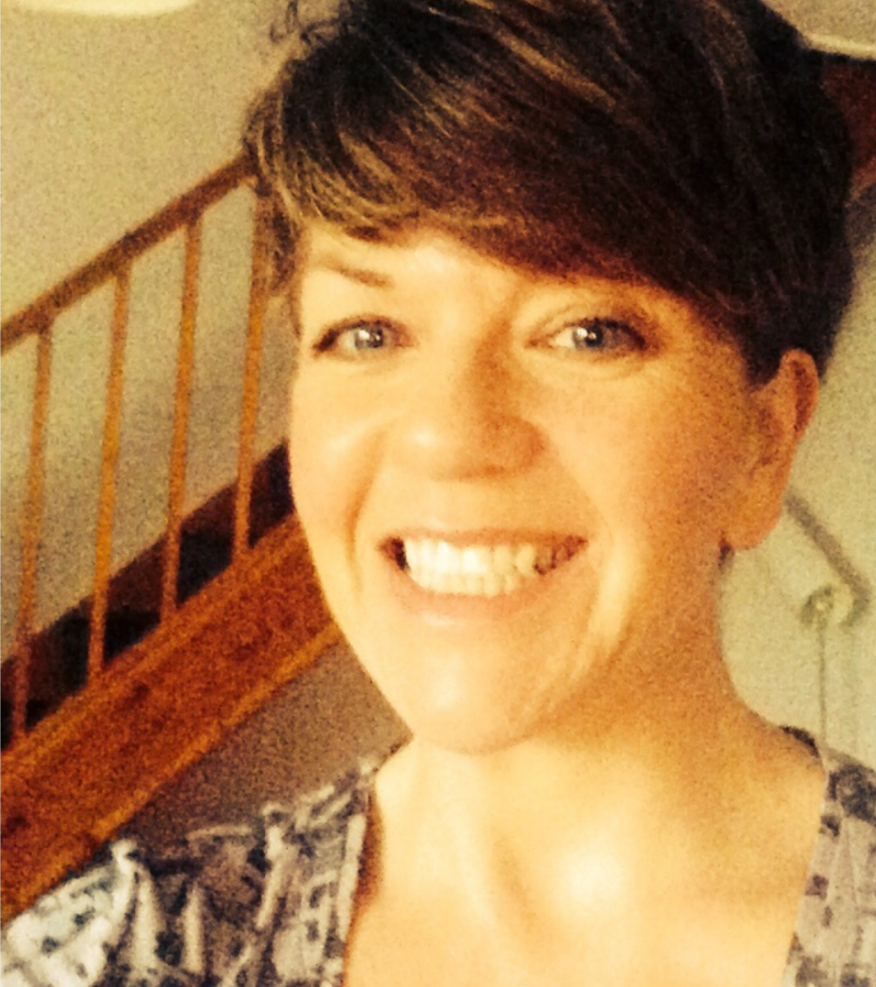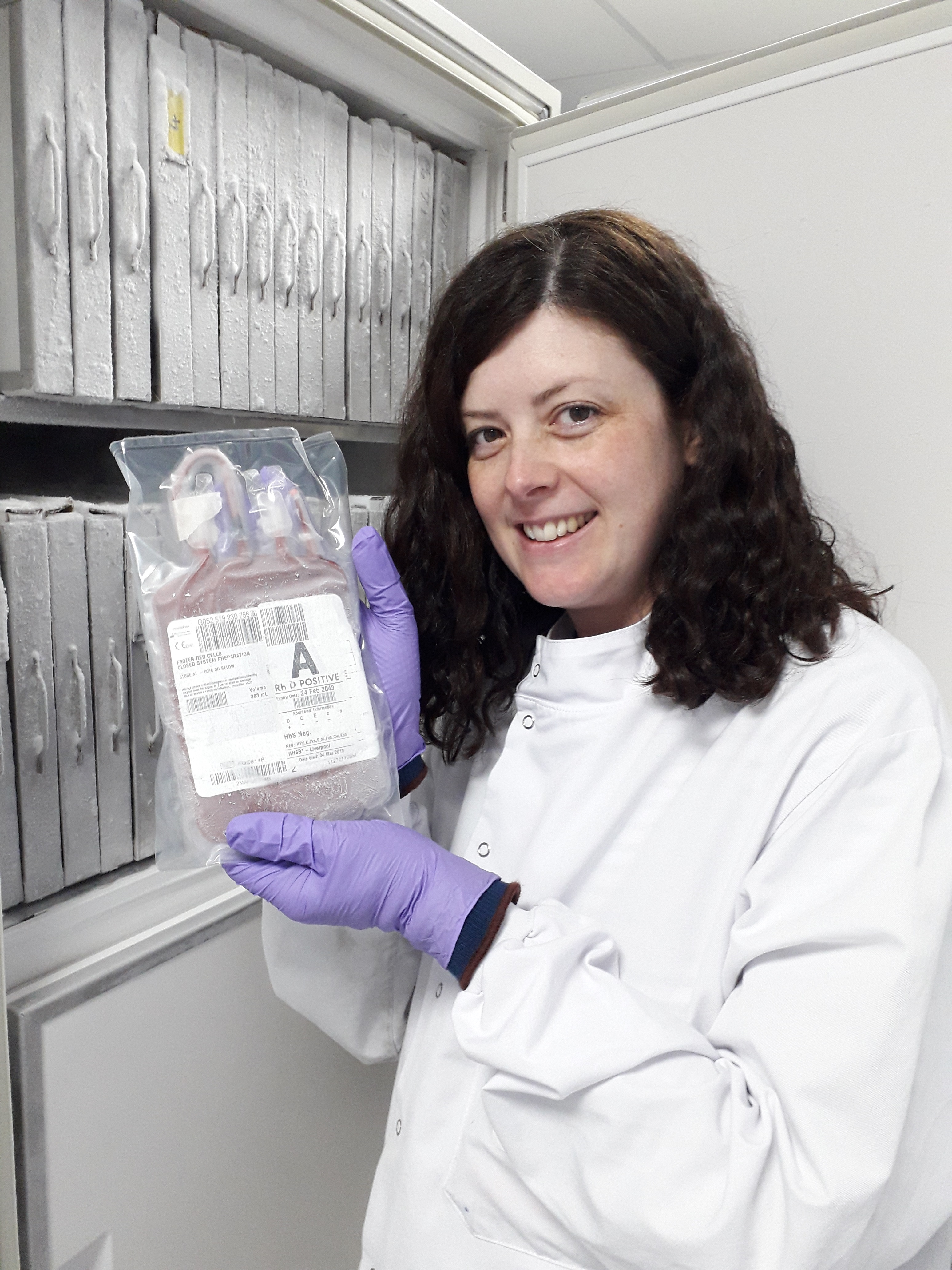NHSBT names its regular donor with the rarest blood type
Sue Olds from Cornwall, aged 52, is the only one of NHS Blood and Transplant's (NHSBT) 830,860 donors with -D- blood.
This is a very rare type in the Rh blood group system.
 It’s extremely scarce worldwide, with only 110 donors in the world on the International Blood Group Reference Laboratory database, of which 80% are in Japan.
It’s extremely scarce worldwide, with only 110 donors in the world on the International Blood Group Reference Laboratory database, of which 80% are in Japan.
Her donations are very valuable and they are now stored in the National Frozen Blood Bank in Liverpool.
Sue, from St Just in Cornwall, has donated blood nearly 50 times. Two of her frozen units have been issued to a baby.
She donates every 16 weeks at her local session in Penzance.
Sue, who works in community rehabilitation for the NHS, said: “The nurses say because it’s me they need to get a special label but other than that it’s just a normal donation.
“I enjoy donating; the session staff are extremely caring, they always make me feel welcome. It’s a positive experience with no need to be anxious.
“When the blood goes off I have a really good feeling that I am helping someone.”
NHSBT has other regular donors with an incredibly rare type (such as one KL- donor and one Hy- donor) but Sue’s blood type is probably the rarest and most valuable.
Her blood is incredibly precious because it could be given to patients with any RhCcEe-related antibodies.
-D- is a variant within the Rh system. Most people with Rh have the C/c and E/e antigens. Someone with -D- is missing the C, c, E and e antigens completely.
If Sue, or another patient with this her type, is transfused with a different type they could form strong antibodies which can have severe, or sometimes even fatal consequences.
 Mike Stredder, Director of Blood Donation for NHS Blood and Transplant, said: “We have an increasingly diverse population which means we need increasingly diverse blood donors.
Mike Stredder, Director of Blood Donation for NHS Blood and Transplant, said: “We have an increasingly diverse population which means we need increasingly diverse blood donors.
“This can be particularly important in the case of very rare blood types – some types are almost only found in people from certain ethnic backgrounds.
“Our very rare donors like Sue are invaluable. If someone with a very rare blood type falls ill, there may be only a handful of donors in the whole country who can help them, or even just one.
“People from diverse backgrounds are more likely to very rare types and we especially need more Black heritage blood donors.”
Become a blood donor. Register today and book and appointment at blood.co.uk or call 0300 123 23 23
Photos
- Sue Olds
- Gina Howarth from NHSBT’s National Frozen Blood Bank in Liverpool with a unit of Sue’s frozen blood
Notes to editors
NHS Blood and Transplant is a joint England and Wales Special Health Authority. We provide the blood donation service for England and the organ donation service for the UK. We also provide donated tissues, stem cells and cord blood. We are an essential part of the NHS, saving and improving lives through public donation.
It is quick and easy to book an appointment to give blood. Call 0300 123 23 23 or visit blood.co.uk
NHS Blood and Transplant needs to collect 1.4 million units of blood each year to meet the needs of patients across England.
There are four main blood groups – O, A, B and AB. O negative (the universal blood group) and B negative are particularly vulnerable to shortfalls. So, we want people with those blood groups to donate as regularly as they can.
The overall demand for blood is falling by 3-4% per year due to improvements in clinical practice and our work with hospitals to ensure blood is used appropriately for patients.
We need 135,000 new blood donors each year to replace those who stop donating and to ensure we have the right mix of blood groups to match patient needs in the future
We urgently need more Black heritage blood donors as they are more likely to have the blood type needed to treat the increasing number of people living with sickle cell.
